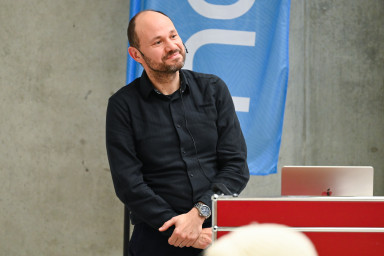21 Jan, 2025, 17:00Auditorium, HCU
Prof. Dr. Mike Raco (University College London)
Who is governing London? The London Model and the future of global cities

Image © Clara Mross.
Abstract
This presentation addresses what seems a straightforward question: Who is governing London and how? Similar questions are being asked in megacities and societies across the world in an era that is shaped by multiple crises and insecurities. Drawing on a range of evidence, the analysis documents the rise of a growth-led London Model of planning. At its heart has been a slow but steady corrosion of the public realm in which powers, resources, and responsibilities have been voluntarily ceded to a range of players at multiple scales, found mainly in the private sector. The talk documents the ways in which planning deliberations and political choices are now conducted in the ‘shadow of the market’, with an eye to what these players and interests – what the authors term the para-state – want and need. There is nothing inevitable about what has happened in London and nothing irreversible given sufficient political will. The discussion concludes with reflections on the comparability of the London experience with other cities in Europe and beyond and highlights areas for collaborative further research.
Bio
Mike Raco is a professor of urban governance and development in the Bartlett School of Planning, University College London. His background is in planning, geography, and urban studies, and he has published widely on the topics of urban governance and regeneration, urban sustainability, housing markets, and the politics of urban and regional economic development. He has received funding from, amongst others, the ESRC, EPSRC, British Academy, and the European Union, and he recently led an international team working on a collaborative ORA-ESRC-funded project on investment flows and residential development in London, Paris, and Amsterdam named WHIG?: What is Governed in Cities. Between 2013 and 2017 he co-led an EUFP7-funded project named DIVERCITIES that examined the governance and management of diversity in 14 cities in Europe and North America. Recent contributions have focused on: the role of private knowledge in shaping the planning and development of cities; the marketization of governance; welfare state reform; and the impacts of urban development on people and places. His recent book publications include London (with Frances Brill; Agenda Press, 2022) and Planning and Knowledge: How New Forms of Technocracy are Shaping Contemporary Cities (co-edited with Federico Savini; Policy Press, 2019).